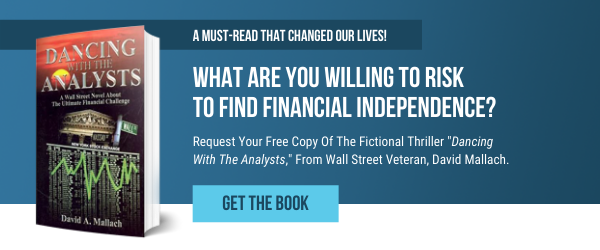If you’ve got any money in the markets, you’ve probably had your eyes glued to the Dow Jones, NASDAQ, and the S&P 500. But just as ignoring the economic impact of COVID-19 can be harmful, obsessing and letting the current stock market volatility control your actions is a road to financial disaster.
What Is Market Volatility?
We’ve seen drops, halts, and rallies across all indices due to COVID-19, geopolitical tensions globally, disruptions in the supply chain, and fears of (and actual) inflation. We get it. As a no-bonds investment firm, we’re focused on the stock market. But our job is to look past the individual events that some clients and many traders dwell on, to focus on the long view. Here are a few things to keep in mind.
Economic and Stock Market Terms You Need To Know:
What is a bear market?
- A bear market is an indicator but not a trend. When the stock market drops 20% or more from its last high, that’s a bear market (the opposite, a rise of 20% from the last low, is a bull market). Markets can rapidly switch from bear to bull and back again.
- A bear market is not a recession. A recession is not measured by the stock market, but instead by the GDP (Gross Domestic Product). Two consecutive quarters – 6 months – of decline marks a recession. The media likes to debate whether or not we’re in a recession - the only way to call a recession is to show two consecutive quarters of decline in the GDP.
What is a trading halt?
- A trading halt is a kind of circuit breaker on frenzied market activity. On March 9th and March 16th of 2022, automatic halts occurred to pause trading. This is the stock market equivalent of a timeout. It is intended to give people an opportunity to calm down and think (and act!) more rationally.
Long-Term Investment Strategies in Volatile Markets
All of the above, from worries about recessions (and actual recessions) to bull and bear markets and trading halts, have played out before. It’s easy for anyone to go into a panic, unless one mentally steps away from the stock market and thinks objectively. One of the biggest ways we help our clients is to separate the emotional aspects of investing from the rational ones. Often they are intertwined! The markets will always go up and down - and you want them to, if you plan to grow your assets! What is important is to keep in mind that over the long term, the market has historically trended upward, despite the day-to-day ups and downs.
The Importance of Patience
Patience isn’t the ability to wait: it’s about being ready. Part of our investment philosophy is built around being ready instead of being impulsive. Investments that end up being wildly successful rarely go from obscurity to prominence overnight. It can sometimes take years for an investment to reach its full potential. Successful investors are those who wait and see instead of reacting to market volatility.
Stick to the Financial Plan
In times of volatility, it’s human to want to seek certainty. Your financial plan can provide certainty, in the sense that it has charted a course for you to follow. However, don’t be afraid to speak honestly with your financial advisor about your concerns or new goals that may have emerged, such as buying a vacation home, or starting a family. A good advisor will always be upfront and honest with you. Plus, if they act as your fiduciary, they are obligated to keep your best interest at the center of their advisory relationship with you.
If you are a financial advisor, remember that your clients may be going through difficult times, and could use empathy as they question their financial plans during volatile markets.
Take the Long View With Your Financial Future
We provide full wealth management services, and while many clients believe that the most important thing they can do is to invest, actually the most important thing is to be clear on your long-term goals and objectives. Taking the long view starts with building a financial plan.
For this reason, we would advise you to focus past the pandemic, the political and economic news that fills your news feeds, and instead to take the long view – including staying true to your most cherished financial goals and dreams.
We know that stock market volatility can be as daunting. What’s important right now is to focus on your financial future and your immediate health. If you’d like to talk to us about your current financial concerns or your long-term dreams and goals, we’re always eager to help. Contact Beck Bode right here or give us a call at (617) 209–2224.

 Benjamin Beck, CFP®
Benjamin Beck, CFP®